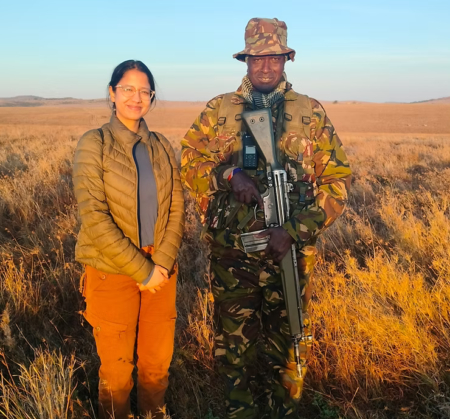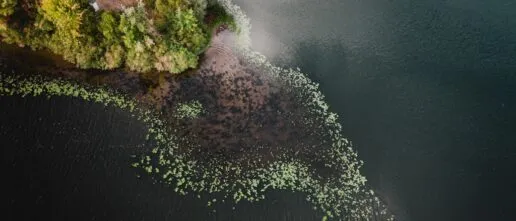Leverhulme Centre for Nature Recovery postdoctoral researcher, Megha Ojha, recently embarked on an inspiring journey to Kenya. Here she visited the Natural State Research Centre, a non-profit organization actively working in the Kenyan savannas, a region of unparalleled ecological significance.
Megha is a postdoctoral researcher in the Ecosystems Lab in the Environmental Change Institute, where she is working on the development of a biodiversity intactness index for tropical savannas. Her research focuses on understanding the ecological health of savannas, particularly in relation to herbivory intensity and various management interventions.
The primary goal of Megha’s field trip was to immerse herself in the ongoing collaborative efforts between Natural State and Oxford. Her visit focused on gaining deeper insights into their long-term research initiatives and practical conservation work. Megha explored several long-term monitoring plots spread across diverse conservancies, offering her a glimpse into the intricate dynamics of savanna ecosystems and nature recovery efforts in these areas.
During her time in Kenya, Megha had the opportunity to observe the dedicated field team in action. She watched as they skillfully deployed camera traps and AudioMoths—innovative tools for monitoring wildlife and acoustic landscapes. Additionally, she joined ornithologists conducting bird point count surveys, an essential method for assessing avian biodiversity in the region.

Megha (left) accompanied by an armed game ranger to ensure her protection during fieldwork. These rangers are uniquely trained to safeguard animals from poaching and humans from the dangers of poachers and wild animals
Looking ahead, Megha is preparing for an exciting return to Kenya this June. The upcoming trip will be part of a month-long functional trait campaign, involving a large, multidisciplinary team from Oxford, Kenyan conservancies, and Natural State. The project’s aim is to quantify plant functional traits across different management sites, providing invaluable data to better understand and protect these ecosystems.
Megha’s work exemplifies the collaborative spirit and dedication necessary to address global ecological challenges. Her experiences underscore the value of field-based research in driving impactful conservation strategies.




